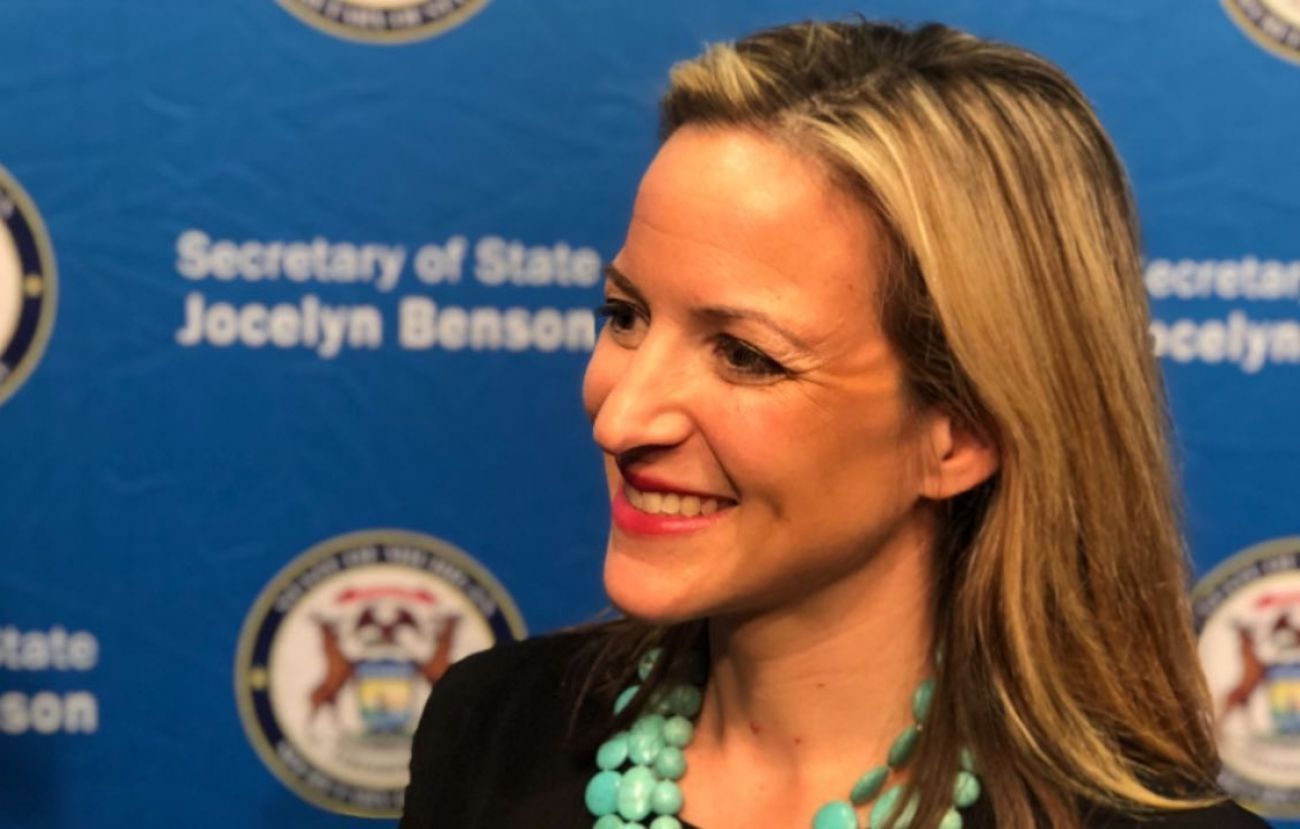Benson: Michigan officials, candidates can use campaign cash for child care

- State elected officials and candidates can use campaign money to pay for child care, according to Secretary of State Jocelyn Benson
- Candidates and officeholders would need to prove child care payments are directly related to their work and necessary
- The interpretative statement follows a request by several current state lawmakers and aligns with federal guidance
LANSING — Elected state officials and candidates can use campaign dollars to pay for child care in most cases, according to a new interpretive statement from Michigan Secretary of State Jocelyn Benson.
State campaign finance law allows parents already in or running for office to pay for child care through specifically their campaign committees if that expense is “directly related to campaign or officeholding activities,” Benson wrote Monday in a letter to a group of lawmakers.
Those lawmakers — three women currently serving in the state Senate, and another four serving in the House — had asked Benson in October whether current law allowed campaign funds to be used for caregiving expenses.
Benson’s interpretation brings Michigan in line with 37 other states and federal guidelines allowing child care and caregivership to be paid for using campaign dollars.
In addition to child care, paying for care of an elderly or disabled relative could technically constitute a campaign expense, Benson added. But that may require proof “that the person using campaign funds for that purpose is the primary caregiver for the individual requiring caregiving.”
The guidance defines a primary caregiver as someone who “holds power of attorney, serves as medical proxy, or another similar showing.”
Related:
- With clock ticking, Michigan Dems eye ‘ghost gun,’ bump stock bans
- Michigan may let candidates, officials use campaign funds for child care
- Donald Trump wants to expand school choice. In Michigan, 1 in 4 participate
Benson’s ruling “will help open up doors for more parents to run for office, those who might have previously dismissed the idea of running for office because of the challenges and cost of child care,” state Sen. Stephanie Chang, D-Detroit, said in a statement.
Chang, the first Michigan Senator to give birth while in office, was one of the female lawmakers to initially request Benson’s clarification.
The interpretive statement, which the state says is not binding but can be relied upon for general guidance, indicates Benson's office intends to allow such campaign spending while she remains Secretary of State.
Benson last year backed legislation from fellow Democrats that would change state law to permanently allow campaign funds to be used for child care and other caregiving expenses.
At the time, critics questioned why lawmakers should get a “carve out” when other Michigan workers would still have to pay for childcare. The proposal has not advanced.
Under Benson’s interpretation of existing law, there are some instances where child care would not be covered. In those instances, she wrote, her department would deploy a “‘but-for’ test” — similar to what federal officials use.
“A candidate or officeholder would not be allowed to use campaign funds to cover caregiving expenses they would have incurred regardless of their status as a candidate or officeholder,” Benson wrote, “but would be allowed to use campaign funds to pay for caregiving expenses which were directly related to campaign or officeholder activities.”
She gave the example of a stay-at-home parent who typically manages the day-to-day child care for his or her family deciding to run for office. In that case, the stay-at-home parent could use campaign funds to pay for child care as they would be unable to run for office otherwise.
If a parent working part-time were already paying for two days of day care but resigned from their job to run for office, “this expense would be impermissible since the expense would have been incurred even if the candidate were not running for office.”
If they needed additional days of child care, increasing from two days of care to four, Benson said those newly needed days would be covered under the Michigan Campaign Finance Act.
“With this, the burden is on the committee at the time of filing a campaign statement to demonstrate that the expenditure would not have been made but for the candidate’s status as a candidate or officeholder,” she wrote, saying that disclosure could be as simple as noting funds were needed to pay “child care for weekly campaign strategy meeting.”
See what new members are saying about why they donated to Bridge Michigan:
- “In order for this information to be accurate and unbiased it must be underwritten by its readers, not by special interests.” - Larry S.
- “Not many other media sources report on the topics Bridge does.” - Susan B.
- “Your journalism is outstanding and rare these days.” - Mark S.
If you want to ensure the future of nonpartisan, nonprofit Michigan journalism, please become a member today. You, too, will be asked why you donated and maybe we'll feature your quote next time!




